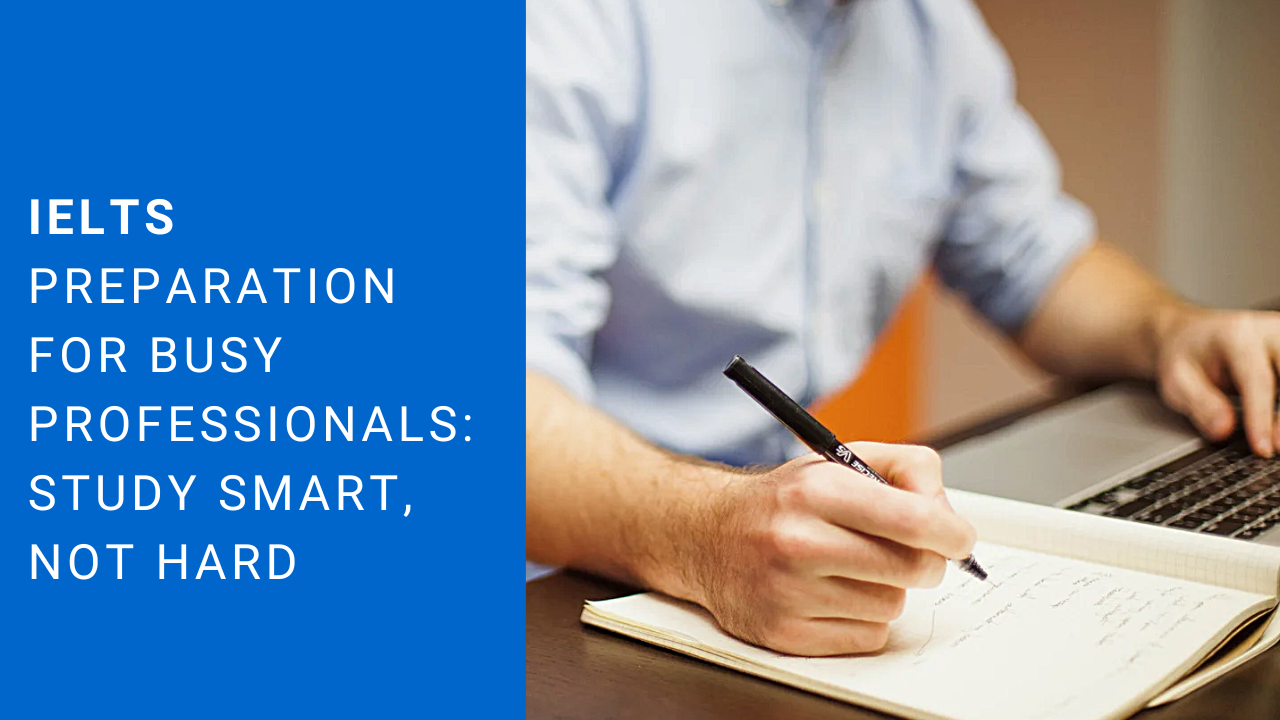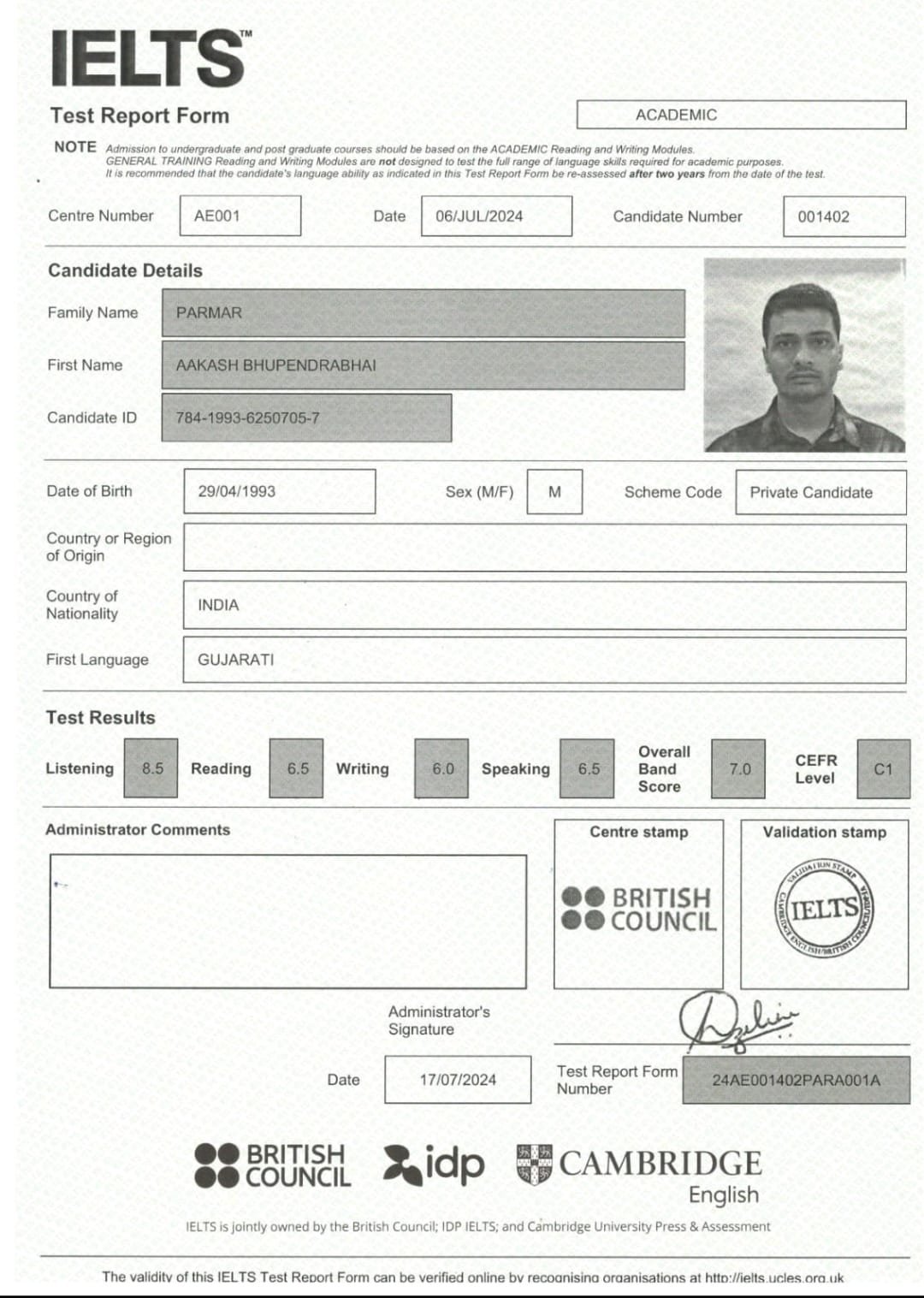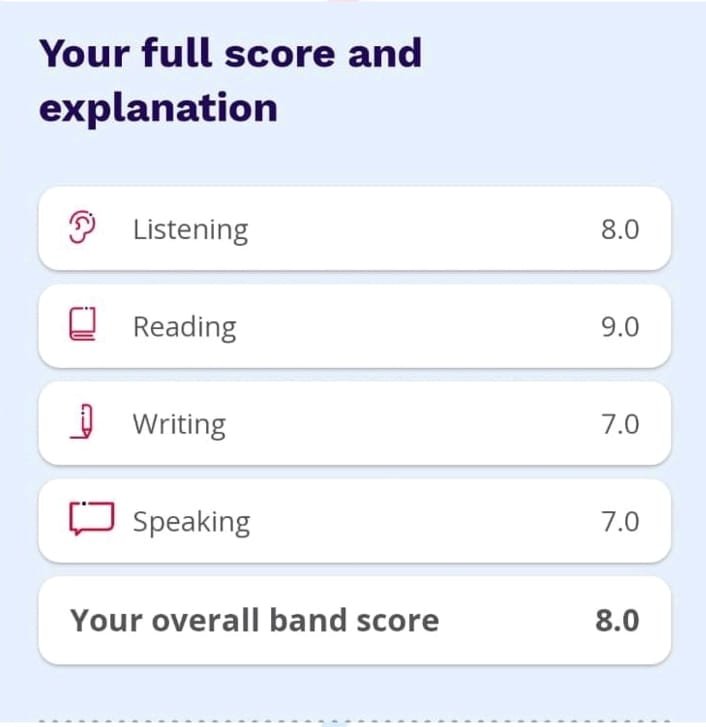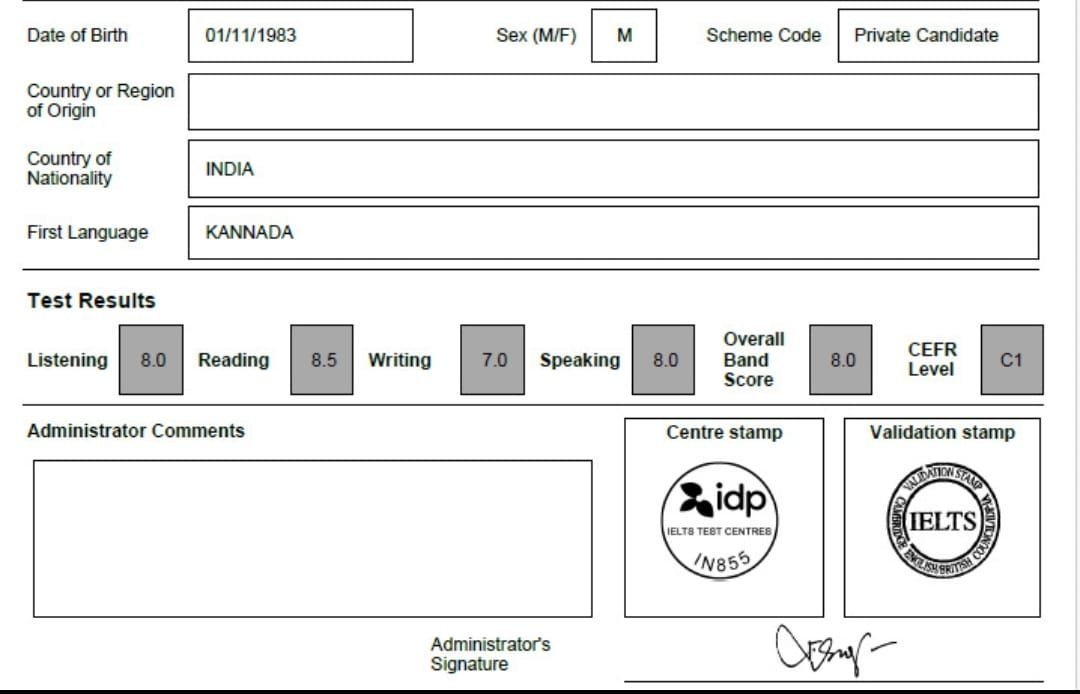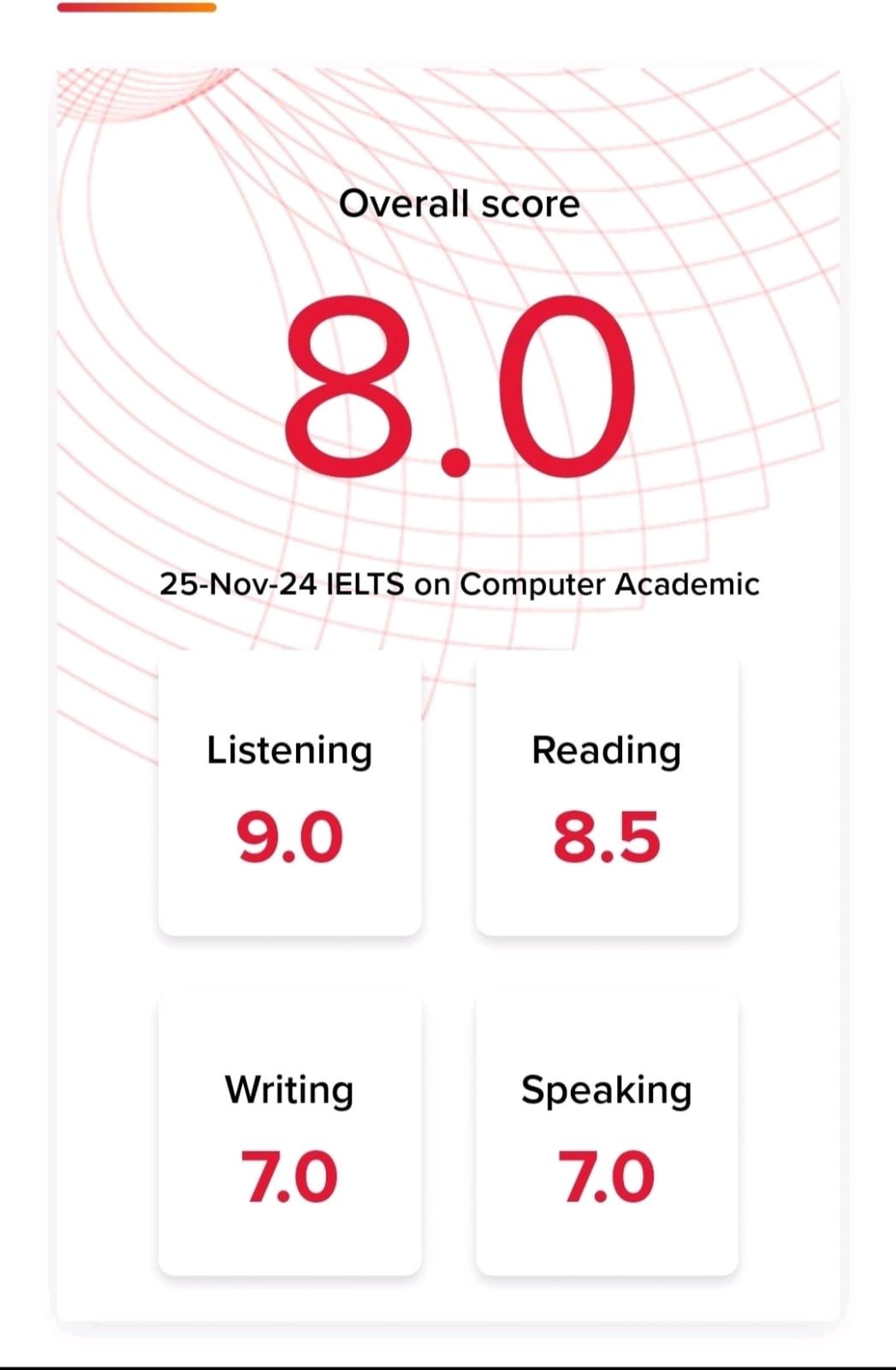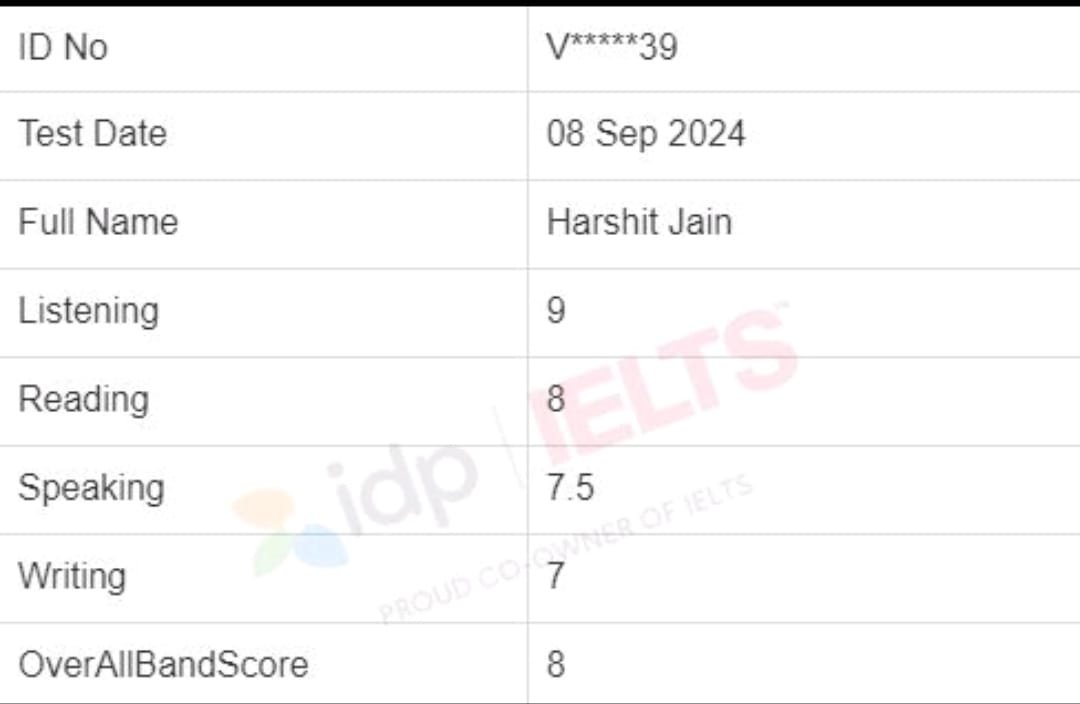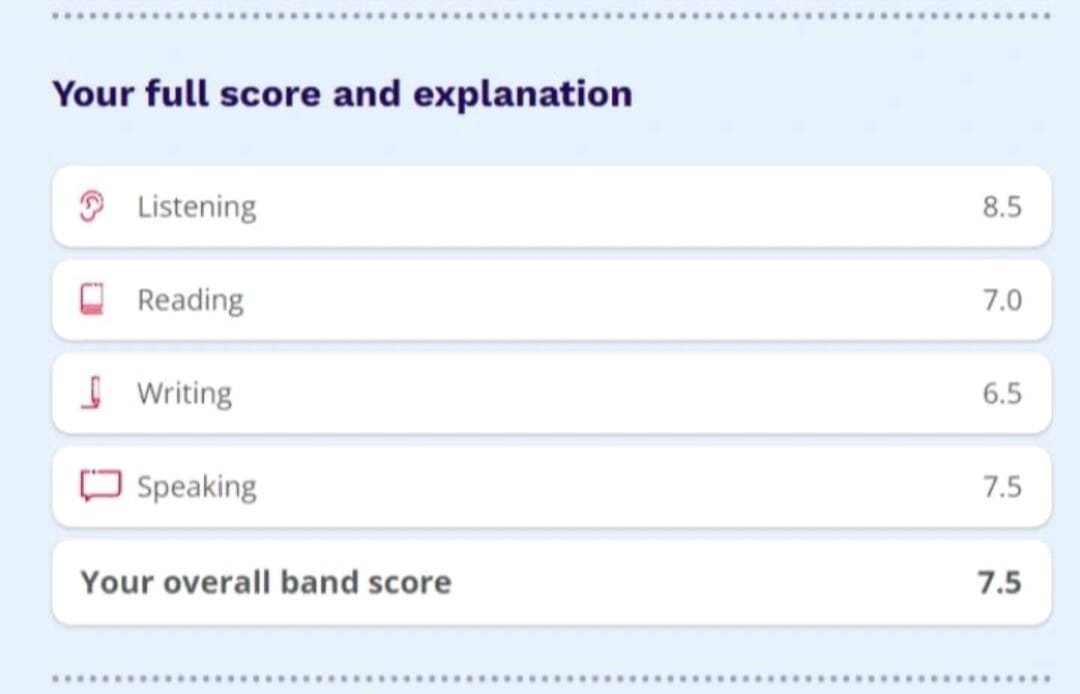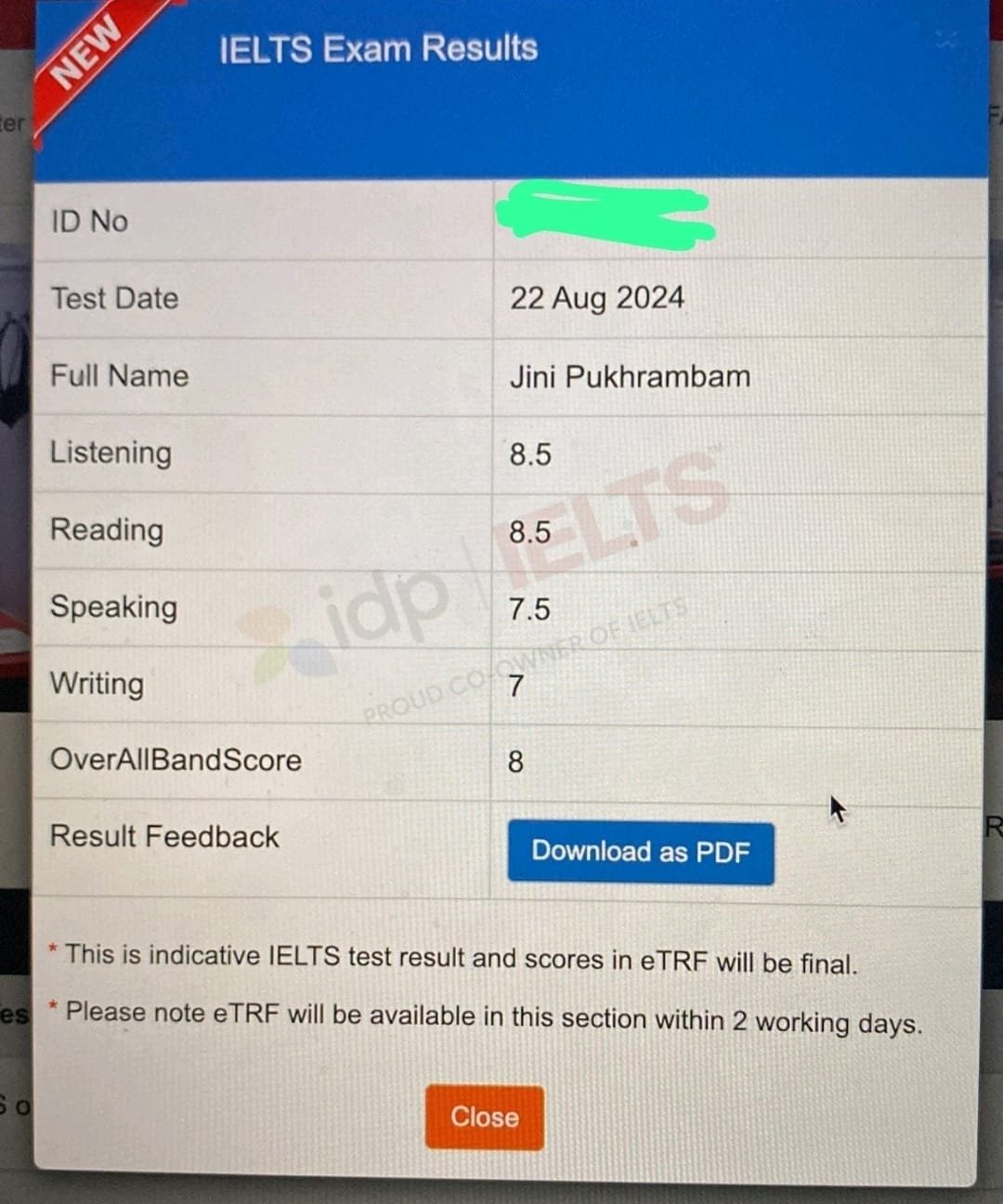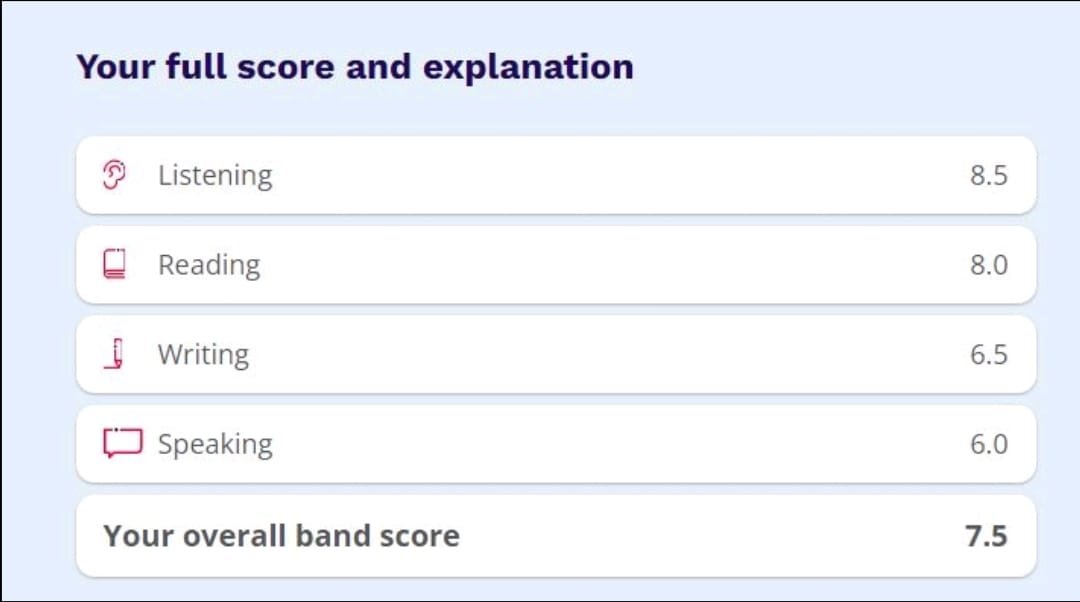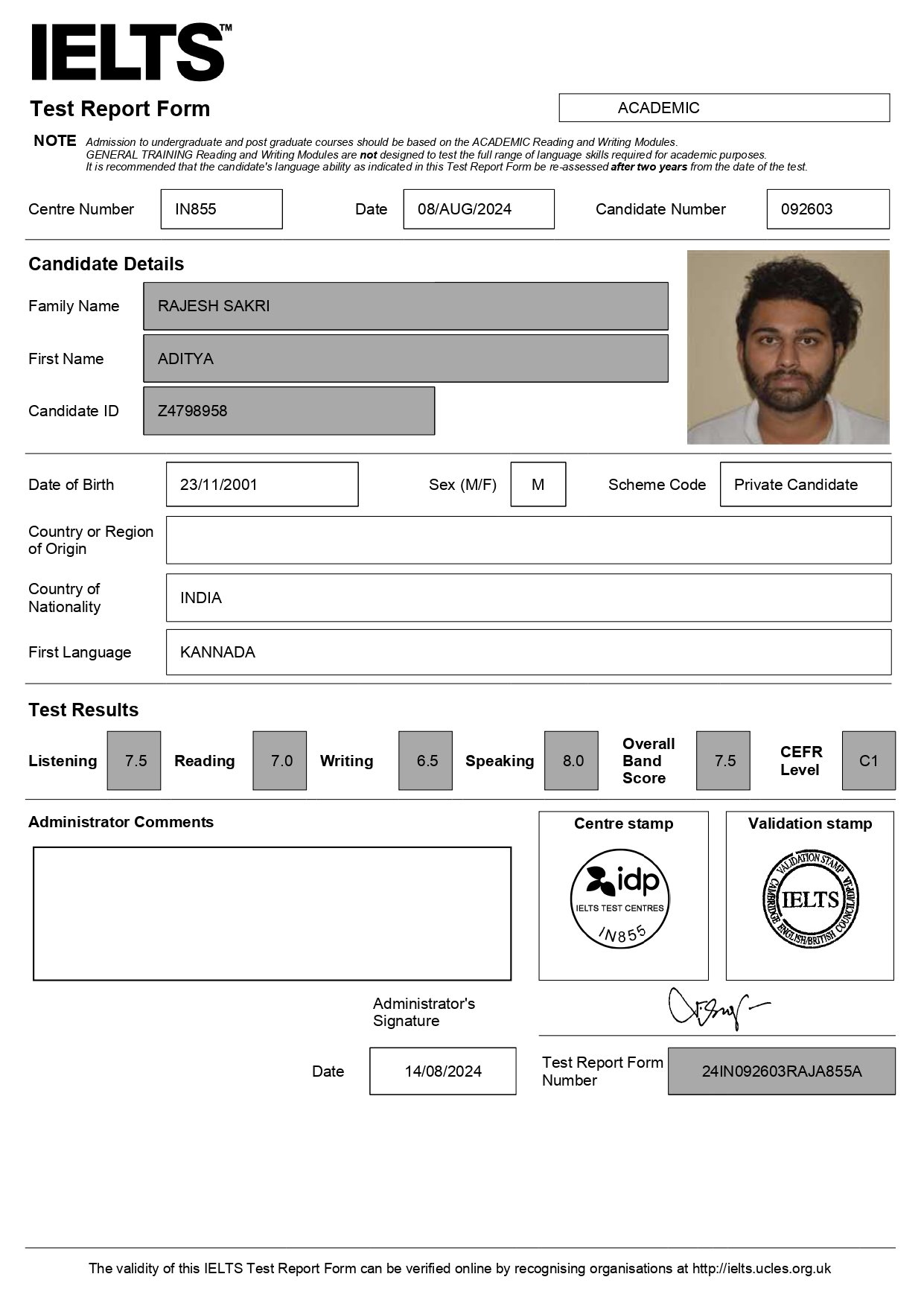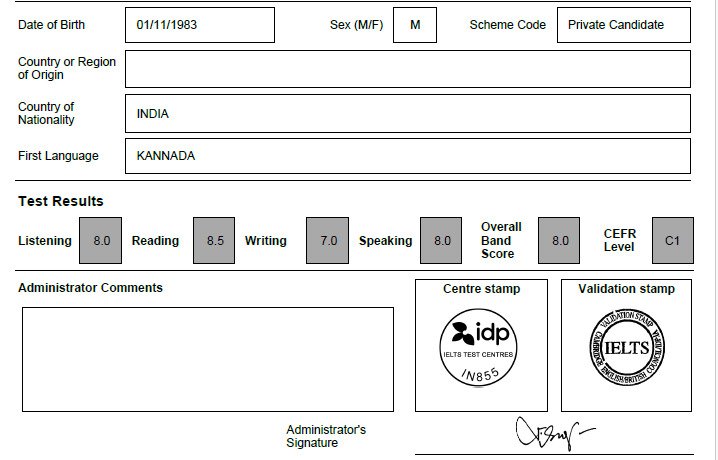
As an IELTS coach with over 14 years of experience, I’ve worked with countless professionals—engineers, doctors, IT consultants, managers—who are balancing demanding careers with the dream of settling abroad. The biggest challenge they all face? Time.
If you’re a busy professional aiming for a high band score in IELTS, I have good news: you don’t need 4-5 hours of daily study. What you need is a strategic, focused approach tailored to your lifestyle. In this blog, I’ll walk you through exactly how to study smart—not hard—and still achieve Band 7 or higher.
Why Busy Professionals Struggle with IELTS—and How to Beat the Odds
You may be highly skilled in your field, but IELTS is a different ballgame. It tests academic English, time management, and test-taking strategy. Most professionals fall into two traps:
- Trying to “cram” on weekends.
- Using generic study plans meant for students.
But your brain is wired differently after a full workday. That’s why my approach is different. I help professionals build a lean study system that fits into their routine. It’s not about working harder—it’s about working smarter.
From Hard Work to Smart Work: Rethinking Your IELTS Strategy
Stop trying to cover everything. Instead:
- Focus on your weak areas first.
- Learn test tricks and patterns, not just content.
- Use your limited energy wisely.
I tell my students: “IELTS doesn’t test intelligence—it tests strategy under pressure.” If you can decode that strategy, you’ll win.
How to Create an Effective IELTS Study Schedule in Just 30 Minutes a Day
Yes, 30 minutes can be enough—if used wisely. Here’s a sample weekly plan:
Monday to Friday:
- 15 minutes in the morning: Listen to a podcast (BBC Learning English, TED Talks)
- 15 minutes in the evening: Targeted practice (e.g., Writing Task 1 intro or one Reading passage)
Saturday:
- 1–2 hours: Full practice test section (rotate each week)
Sunday:
- 1 hour: Review mistakes and track progress
Pro tip: Attach IELTS to your daily habits. Commute? Listen to IELTS audio. Lunch break? Read a passage. Consistency beats intensity.
Set Clear Band Targets and Focus Only on What Matters
A common mistake I see is aiming for “Band 9” in all sections. It’s unnecessary. Check your immigration or academic requirement—often, Band 7 or 7.5 overall is enough, with no section below 6.5.
Here’s how you can break it down:
| Section | Target Band | Focus Area |
| Listening | 7.5 – 8 | Concentration, paraphrasing clues |
| Reading | 7 | Time management, skimming/scanning |
| Writing | 7 | Task achievement, grammar, cohesion |
| Speaking | 7 | Fluency, pronunciation, spontaneity |
Focus on the sections you’re weak in. That’s where smart progress happens.
Smart Tips for Each Module (Listening, Reading, Writing, Speaking)
Listening: Practice While Commuting
- Listen to real English, not scripted IELTS audio only.
- Focus on paraphrasing and prediction. Learn how the speaker “hints” at answers.
- Use the pause–play–repeat method. Replay difficult sections and transcribe.
Reading: Learn Scanning and Skimming in 20 Minutes
- Don’t read the passage first. Read the questions first.
- Learn to scan for keywords and synonyms.
- Time yourself on True/False/Not Given questions—these often eat up time.
Writing: Use Templates and Time-Saving Frameworks
- Don’t start from scratch every time.
- Have ready-made structures for Task 1 (overview, data comparison) and Task 2 (opinion, advantages/disadvantages, problem-solution).
- Focus more on idea clarity and grammar accuracy than sounding “fancy.”
Speaking: Practice with AI Tools or Voice Memos
- Record yourself answering Part 2 questions.
- Use AI speaking apps to get feedback on fluency and pronunciation.
- Practice common topics like education, travel, work, daily routines.
Top 5 Apps and Tools Every Busy IELTS Aspirant Should Use
Technology can make your prep 10x more efficient. Here are my top picks:
- IELTS Prep by British Council – Official practice material.
- E2 IELTS – Video lessons, practice questions, and live classes.
- BBC Learning English App – Daily short lessons and videos.
- Anki or Quizlet – Flashcards for vocabulary revision.
- Voice Recorder + Grammarly – Record speaking and check writing mistakes.
Bonus tip: Use YouTube channels like “IELTS Liz” and “AcademicEnglishHelp” for bite-sized video lessons.
Why One Hour of Focused Practice Beats Three Hours of Passive Study
Many professionals waste time reading or watching IELTS content passively. Instead:
- Do active tasks like writing essays, solving reading passages, or answering speaking questions.
- Review your mistakes critically.
- Track your band score weekly.
I once had a student, Priya, who worked 12-hour hospital shifts. She studied just 40 minutes a day—but every minute counted. She hit Band 8 in just 5 weeks. Why? She studied with intent, not anxiety.
How to Learn IELTS Skills in 10-Minute Daily Chunks
Here’s how to break IELTS into microlearning:
- 10 minutes reading: One paragraph + 3 questions.
- 10 minutes writing: Intro + overview sentence.
- 10 minutes listening: One section + transcription.
- 10 minutes speaking: Voice memo for Part 2 + self-evaluation.
Use a timer. The idea is to create momentum through quick wins, not overwhelm.
How to Use Mock Tests Without Wasting Time
Most professionals take mock tests blindly. That’s a mistake. Here’s the right way:
- Take one section at a time.
- Analyze your mistakes. Ask: Was it timing? Vocabulary? Misreading?
- Track patterns. If you always miss Matching Headings, work specifically on that.
- Don’t repeat the same test—you’ll only get false confidence.
Once a week is enough. Mock tests are for diagnosis, not daily practice.
How I’ve Helped Working Professionals Achieve Band 7+ With Limited Study Time
Let me share a few success stories from my coaching experience:
- Rahul, a software engineer, only had 30 minutes daily. We focused on listening during his commute and writing once a week. He moved from Band 6.5 to 8 in 6 weeks.
- Meera, an HR professional, was stuck at Band 6 in Speaking. I got her to record herself daily and use AI feedback tools. She hit Band 7.5 in just 3 weeks.
- Dr. Amin, a medical professional, did not have time for full tests. We trained him on just Task 1 and Listening. He scored 8 overall with 7.5 in Writing—his toughest area.
It’s not about time. It’s about intention and technique.
Your Time is Limited — But Your Score Doesn’t Have to Be
If you’ve made it this far, you’re already more committed than most.
Here’s what I want you to remember:
- Set a clear goal.
- Follow a focused plan.
- Practice smart, not long.
IELTS is not just a test of English. It’s a test of strategy, self-discipline, and consistency. And as a busy professional, you already have those traits—you just need to redirect them into a smart preparation path.
If you need help creating a custom study plan based on your lifestyle, I’m here to help.
Now go and take the next step. Your Band 7+ journey starts today—not when you “have more time.”
